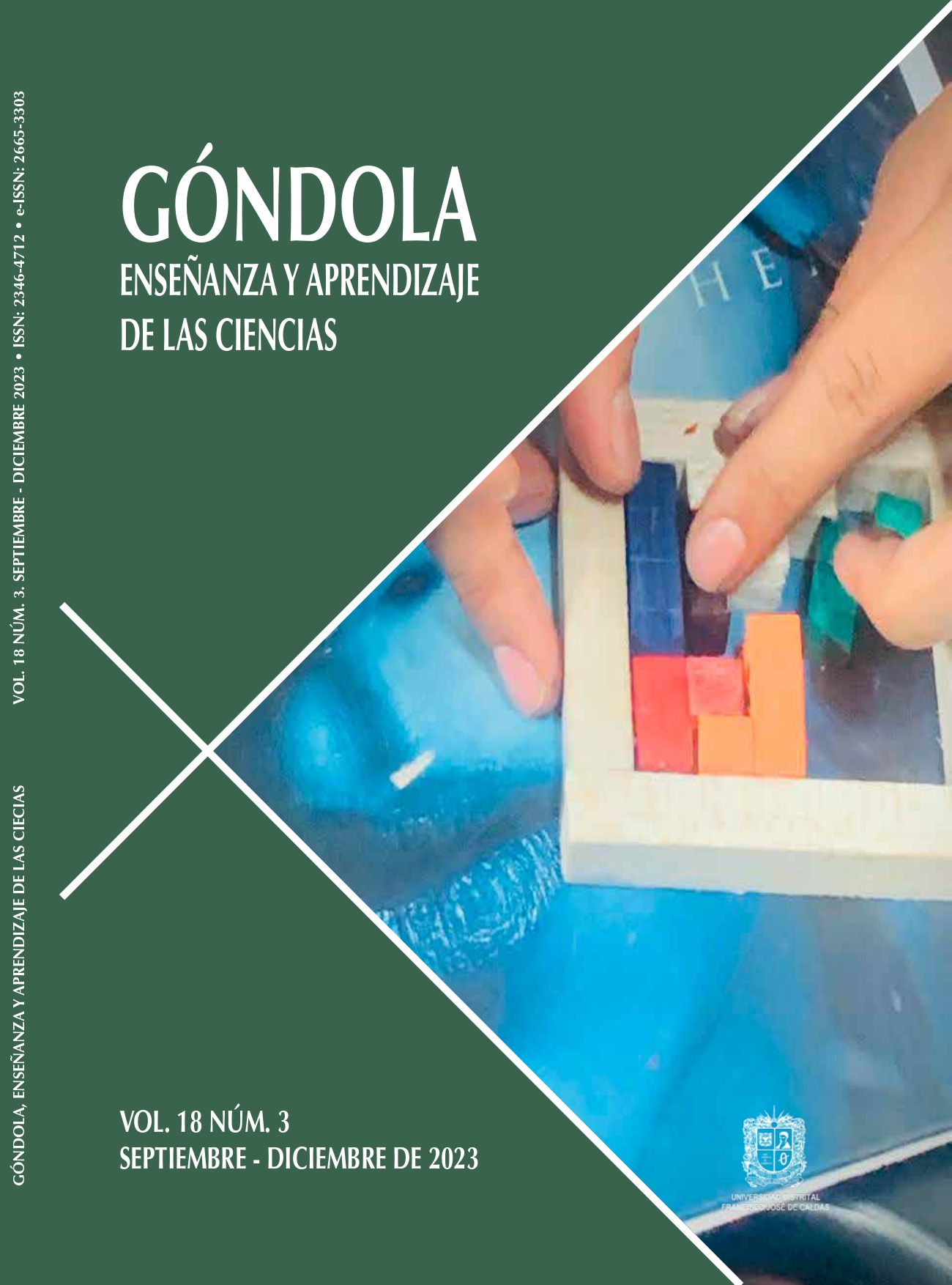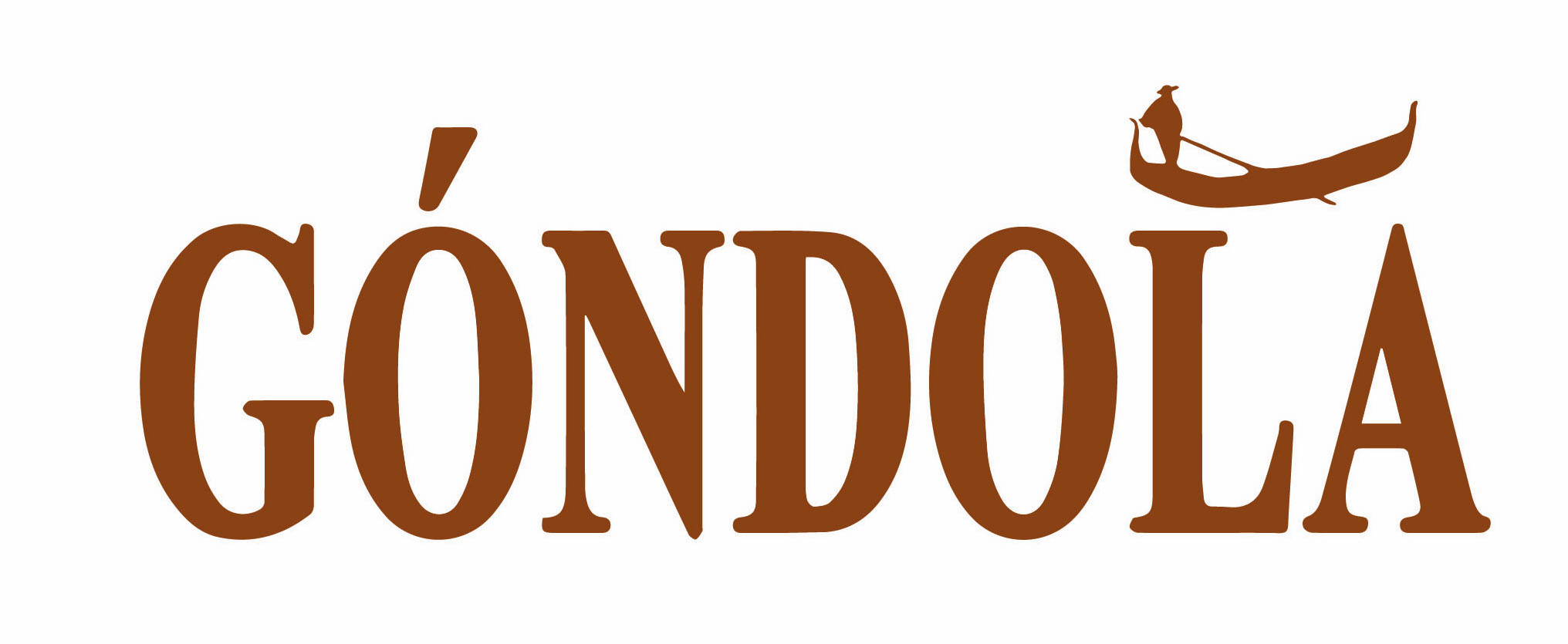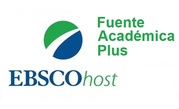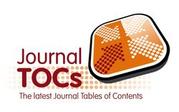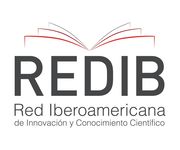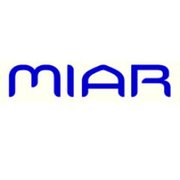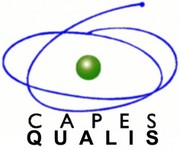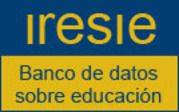DOI:
https://doi.org/10.14483/23464712.21036Published:
2023-11-09Gamificación para la Enseñanza y Aprendizaje de las Matemáticas basado en la Solución de Problemas en Estudiantes con Necesidades Educativas Especiales (NEE)
Gamification for the Teaching and Learning of Mathematics Based on Problem Solving for Students with Special Educational Needs Sen
Gamificação para o Ensino e Aprendizagem da Matemática Baseada na Resolução de Problemas para Alunos com Necessidades Educacionais Especiais (Nee)
Keywords:
Inclusion, necesidades educativas especiales., Gamificación, Solución de Problemas (es).Keywords:
Inclusão, Deficiência Cognitiva, Gamificação, Resolução de Problemas (pt).Keywords:
Inclusion, Cognitive disability, Gamification, Problem Solving (en).Downloads
Abstract (es)
Esta investigación tuvo como objetivo diseñar e implementar un conjunto de actividades orientadas a la gamificación de retos matemáticos que permitan identificar conocimientos de los estudiantes con necesidades educativas especiales (NEE) de ciclo V, a partir de la solución de problemas y establecer qué heurísticas o recursos emplean en su desarrollo. Se usó como metodología un enfoque cualitativo, donde se realizó un estudio de caso con cinco estudiantes (tres mujeres y dos hombres) de grado décimo de un colegio público de la ciudad de Bogotá, Colombia. Para ello, se establecieron cuatro fases: la primera consistió en el planteamiento del problema, fundamentación teórica y determinación de elementos metodológicos para el desarrollo de la investigación. La segunda fue el diseño de un ambiente virtual de aprendizaje (AVA) en ingame con un primer mundo denominado “Explorando”, donde los estudiantes se enfrentaron a seis retos matemáticos en la plataforma, que tuvo herramientas interactivas, y dinámicas de juego para incentivar la participación en la clase de matemáticas. La tercera fase fue la socialización del proyecto a la institución educativa, además de la solicitud a los padres de familia de los consentimientos informados, por ser menores de edad, y la implementación del AVA. La última fase muestra el análisis de resultados frente al trabajo de los estudiantes, así como las soluciones dadas en cada uno de los retos, y se analizan elementos del discurso matemático que emplean a la hora de justificar sus respuestas. Este primer estudio sirve como punto de partida y orientación para el desarrollo de esta pesquisa y abre una puerta para profundizar en investigaciones sobre el uso de la gamificación en la enseñanza y aprendizaje de la matemática y su pertinencia para incluir a estudiantes que presentan diferentes situaciones de discapacidad.
Abstract (en)
This research aimed to design and implement a set of activities aimed at the gamification of mathematical challenges that allow identifying knowledge of students with special educational needs (SEN) of cycle V, based on problem solving and establishing which heuristics or resources used in their development. A qualitative approach was used as a methodology, where a case study was carried out with five tenth grade students (three women and two men) from a public school in the city of Bogotá, Colombia. For this, four phases were established: the first consisted of the formulation of the problem, theoretical foundation and determination of methodological elements for the development of the research. The second was the design of a Virtual Learning Environment AVA in ingame with a first world called “Exploring”, where students faced six mathematical challenges on the platform, which had interactive tools and game dynamics to encourage participation in math class. The third phase was the socialization of the project to the educational institution, in addition to the request from parents for informed consent, since they were minors, and the implementation of the AVA. The last phase shows the analysis of results against the students' work, as well as the solutions given in each of the challenges, and elements of the mathematical discourse that they use when justifying their answers are analyzed. This first study serves as a starting point and orientation for the development of this research and opens a door to deepen research on the use of gamification in the teaching and learning of mathematics and its relevance to include students who present different learning situations. disability.
Abstract (pt)
Esta investigação teve como objetivo conceber e implementar um conjunto de atividades voltadas para a gamificação de desafios matemáticos que permitam identificar conhecimentos de alunos com necessidades educativas especiais (NEE) do ciclo V, com base na resolução de problemas e estabelecer quais as heurísticas ou recursos utilizados no seu desenvolvimento. Utilizou-se como metodologia uma abordagem qualitativa, onde foi realizado um estudo de caso com cinco alunos do décimo ano (três mulheres e dois homens) de uma escola pública da cidade de Bogotá, Colômbia. Para isso foram estabelecidas quatro fases: a primeira consistiu na formulação do problema, fundamentação teórica e determinação de elementos metodológicos para o desenvolvimento da pesquisa. A segunda foi a concepção de um Ambiente Virtual de Aprendizagem AVA ingame com um primeiro mundo denominado “Explorando”, onde os alunos enfrentavam seis desafios matemáticos na plataforma, que contava com ferramentas interativas e dinâmicas de jogos para estimular a participação nas aulas de matemática. A terceira fase foi a socialização do projeto à instituição de ensino, além da solicitação de consentimento informado dos pais, por serem menores, e a implementação do AVA. A última fase mostra a análise dos resultados face ao trabalho dos alunos, bem como as soluções dadas em cada um dos desafios, e são analisados elementos do discurso matemático que utilizam para justificar as suas respostas. Este primeiro estudo serve como ponto de partida e orientação para o desenvolvimento desta investigação e abre portas para aprofundar pesquisas sobre a utilização da gamificação no ensino e aprendizagem da matemática e a sua relevância para incluir alunos que apresentam diferentes situações de aprendizagem.
References
AINSCOW, M.; BOOTH, T.; DYSON, A. Improving schools, developing inclusion. Routledge. Nueva York: Estados Unidos. 2006. https://doi.org/10.4324/9780203967157
ALDANA, E.; LÓPEZ, J. Matemáticas para la diversidad: un estudio histórico, epistemológico, didáctico y cognitivo sobre perímetro y área. Revista Investigación Desarrollo e Innovación, Duitama: Colombia, v. 7, n. 1, pp. 77-92. 2016. https://doi.org/10.19053/20278306.v7.n1.2016.5602
ARETIO, G. El juego y otros principios pedagógicos. Su pervivencia en la educación a distancia y virtual. RIED: Revista Iberoamericana de Educación a Distancia, Madrid: España, v. 19, n. 2, pp. 9-23. 2016. https://doi.org/10.5944/ried.19.2.16175
ARIAS, R.; PRIETO, A. I. Aprendizaje de los números (del 0 al 9) en alumnos con discapacidad intelectual leve. Revista de Educación Inclusiva, Pamplona: España v. 8, n. 1, pp. 42-58. 2015.
ARROYAVE, M.; FREYLE, M. La autodeterminación en adolescentes con discapacidad intelectual INNOVAR. Revista de Ciencias Administrativas y Sociales, Bogotá, v. 19, pp. 53-64. 2009.
BELL, P. On the theoretical breadth of design-based research in education. Educational Psychologist, Washington: EE. UU., v. 39, n. 4, pp. 243-253. 2004. https://doi.org/10.1207/s15326985ep3904_6
BOALER J. Designing mathematics classes to promote equity and engagement. Journal of Mathematical Behavior, Canadá, v. 41, pp. 172-178). 2016. https://doi.org/10.1016/j.jmathb.2015.01.002
BRANSFORD J.; STEIN B. The ideal problem solver. A guide for improving thinking, learning and creativity. W.H. Freeman and Company. Nueva York. 1993.
CHETTY, S. The case study method for research in small-and medium-sized firms. International Small Business Journal, Liverpool: Reino Unido, v. 15, n. 1, pp. 73-85. 1996. https://doi.org/10.1177/0266242696151005
CORTIZO, J.; CARRERO, F.; MONSALVE, B.; VELASCO, A.; DÍAZ, L. I.; PÉREZ, J. Gamificación y docencia: lo que la universidad tiene que aprender de los videojuegos. In: VIII JORNADAS INTERNACIONALES DE INNOVACIÓN UNIVERSITARIA. RETOS Y OPORTUNIDADES DEL DESARROLLO DE LOS NUEVOS TÍTULOS EN EDUCACIÓN SUPERIOR. Madrid: Universidad Europea de Madrid. 2011.
DE GUZMÁN, M. Juegos y matemáticas. Suma, Cataluña: España, n. 4, pp. 61-64. 1989.
DETERDING, S.; DIXON, D.; KAHLED, R.; LENNART, N. From game design elements to gamefulness: Defining "gamification". In: MINDTREK'11 PROCEEDINGS OF THE 15TH INTERNATIONAL ACADEMIC MINDTREK. CONFERENCE: ENVISIONING FUTURE MEDIA ENVIRONMENTS. ACM New York: EE. UU., 2011. https://doi.org/10.1145/2181037.2181040
FERNÁNDEZ, R.; SAHUQUILLO, A. Plan de intervención para enseñar matemáticas a alumnado con discapacidad intelectual. Edma 0-6: Educación Matemática en la Infancia, Valladolid: España, v. 4, n. 1, pp. 11-23. 2015. https://doi.org/10.24197/edmain.1.2015.11-23
GONZÁLEZ, C.; SÁNCHEZ, C. Enseñanza de las matemáticas a estudiantes con diagnóstico de discapacidad intelectual leve. Poiésis, Bogotá, n. 37. 2019. https://doi.org/10.21501/16920945.3331.
GÖRANSSON, K.; HELLBLOM, T.; AXDORPH, E. A conceptual approach to teaching mathematics to students with intellectual disability. Scandinavian Journal of Educational Research, Filadelfia: EE. UU., v. 60, n. 2, pp. 182-200. 2016. https://doi.org/10.1080/00313831.2015.1017836
GROOS, K. Les Jeux des animaux. Felix Alcan. París: Francia. 1902.
HERNÁNDEZ, R.; FERNÁNDEZ, C.; BAPTISTA, P. Metodología de la investigación. 6.ª ed. McGraw-Hill. México. 2014.
HOWARD, S.; SAN MARTIN, C.; SALAS, N.; BLANCO, P.; DÍAZ, C. Oportunidades de aprendizaje en matemáticas para estudiantes con discapacidad intelectual. Revista Colombiana de Educación, Bogotá, n. 74, pp. 197-219. 2018. https://doi.org/10.17227/rce.num74-6906
KEVIN, K.; CHUNG, H.; TAM, Y. Effects of cognitive‐based instruction on mathematical problem solving by learners with mild intellectual disabilities. Journal of Intellectual and Developmental Disability, Australia, v. 30, n. 4, pp. 207-216. 2005. https://doi.org/10.1080/13668250500349409
LÓPEZ M. Barreras que impiden la escuela inclusiva y algunas estrategias para construir una escuela sin exclusiones. Innovación Educativa, México, n. 21, pp. 37-54. 2011.
LÓPEZ J. Comprensión de la probabilidad de jóvenes con discapacidad intelectual. Revista Científica, v. 33, n.3, pp. 306-315. 2018. https://doi.org/10.14483/23448350.13326
MEN (MINISTERIO DE EDUCACIÓN NACIONAL). Fundamentación conceptual para la atención en el servicio educativo a estudiantes con necesidades educativas especiales (NEE). Bogotá. 2006.
MEN. (MINISTERIO DE EDUCACIÓN NACIONAL). Lineamientos Política de Educación Superior Inclusiva. (M. d. Nacional, Ed.) pp.1-98. Bogotá. 2013.
MEN (MINISTERIO DE EDUCACIÓN NACIONAL). Documento de orientaciones técnicas, administrativas y pedagógicas para la atención educativa a estudiantes con discapacidad en el marco de la educación inclusiva. Bogotá. 2017.
OLIVA, A. La gamificación como estrategia metodológica en el contexto educativo universitario. Realidad y Reflexión, v. 16, n. 44, pp. 108-118. 2016. https://doi.org/10.5377/ryr.v44i0.3563
ONU (ORGANIZACIÓN DE NACIONES UNIDAS). Educar para la diversidad. Módulo 4: aulas inclusivas. Santiago de Chile, Chile. 2004.
POLYA, G. Cómo plantear y resolver problemas. Trillas. México. 1976.
PRENDERGAST, M.; SPASSIANI, N.; ROCHE, J. Developing a mathematics module for students with intellectual disability in higher education. International Journal of Higher Education, Ontario: Canadá, v. 6, n. 3, pp. 166-177. 2017. https://doi.org/10.5430/ijhe.v6n3p169
ROSS H. Inclusion in mathematics education: an ideology, a way of teaching, or both? Educational Studies in Mathematics, v.100, pp.25-41. 2019. https://doi.org/10.1007/s10649-018-9854-z
SCHOENFELD, A. Mathematical problem solving. Academic Press. Orlando, Florida: Estados Unidos. 1985.
SCHOENFELD, A. How we think a theory of goal-oriented decision making and its educational applications. Routledge, Taylor & Francis Group. Nueva York: Estados Unidos. 2011.
SFARD, A. Aprendizaje de las matemáticas escolares desde un enfoque comunicacional. Universidad del Valle. Cali: Colombia. 2008. https://doi.org/10.25100/peu.183
SOUSA, R.; ALVES, F.; AZEVEDO, I. Una propuesta didáctica apoyada por GeoGebra para la enseñanza del principio de Cavalieri. Números, Barcelona: España, v. 110, pp. 41-60. 2022.
TENNANT, G.; FOLEY, C. Inclusive approaches to learning and teaching mathematics. In: HYDE, R.; EDWARDS, J.-A. (eds.), Mentoring mathematics teachers. Supporting and inspiring pre-service and newly qualified teachers. Routledge. Londres: Reino Unido. 2014. pp. 77-92.
TOMISLAV, J.; IVICA, B.; HYO, J. Examining competitive, collaborative, and adaptive gamification in young learners' math learning. Computers & Education, Países Bajos, v. 125, pp. 444-457. 2018. https://doi.org/10.1016/j.compedu.2018.06.022
UNESCO. Declaración de Salamanca y marco de acción para las necesidades educativas especiales. Salamanca: España. 1994.
UNESCO. La educación inclusiva: el camino hacia el futuro. CONFERENCIA INTERNACIONAL DE EDUCACIÓN. CUADRAGÉSIMA OCTAVA REUNIÓN. 2008.
UNESCO. Inclusión y educación: Todos sin excepción. París, Francia. 2020
ZAYYADI, M.; NUSANTARA, T.; SUBANJI, S.; HIDAYANTO, E.; SULANDRA, I. A commognitive framework: The process of solving mathematical problems of middle school students. International Journal of Learning, Teaching and Educational Research, Mauricio: República de Mauricio, v. 18, n. 2, pp. 89-102. 2019 https://doi.org/10.26803/ijlter.18.2.7
How to Cite
APA
ACM
ACS
ABNT
Chicago
Harvard
IEEE
MLA
Turabian
Vancouver
Download Citation
License
Copyright (c) 2023 Autor y Góndola. Enseñanza y Aprendizaje de las Ciencias

This work is licensed under a Creative Commons Attribution-NonCommercial-NoDerivatives 4.0 International License.
Gondola, Ens Aprend Cienc. is an open-access publication, free of charge for authors and readers. The publication, consultation or download of the contents of the magazine does not generate any cost for the authors or the readers, since the Francisco José de Caldas District University assumes the expenses related to edition, management and publication. The peer evaluators do not receive any economic retribution for their valuable contribution. The work of all the actors mentioned above is understood as a contribution to the strengthening and growth of the research community in the field of Science Education.
As of December 1, 2018 the contents of the journal are published under the terms of the Creative Commons License Attribution-Noncommercial- ShareAlike 4.0 International (CC-BY-NC-SA 4.0), under which others may distribute, remix, retouch, and create from the work in a non-commercial way, give credit and license their new creations under the same conditions.
The copyright holders are the authors and the journal Gondola, Ens Aprend Cienc. The holders retain all rights without restrictions, respecting the terms of the license in terms of consultation, downloading and distribution of the material.
When the work or any of its elements is in the public domain according to the applicable law in force, this situation will not be affected by the license.
Likewise, we encourage authors to deposit their contributions in other institutional and thematic repositories, with the certainty that culture and knowledge is a good of all and for all.

